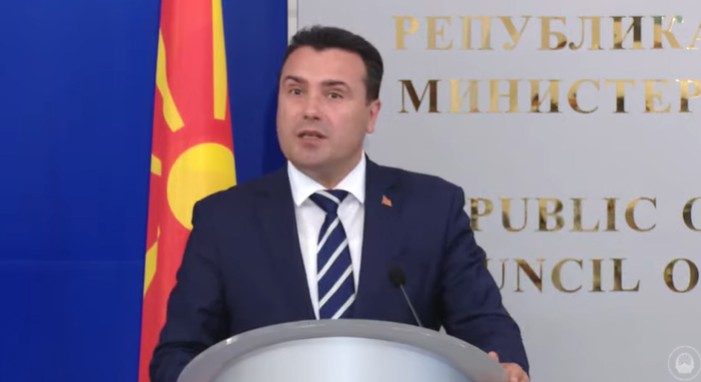During his visit to Sofia, Zoran Zaev promised to amend the Constitution and add the Bulgarian community in the preamble, as well as to open Macedonian historic archives, in new gestures meant to placate Bulgaria, but this did not lead to a promise that Bulgaria will lift its veto. Bulgarian interim Prime Minister Stefan Janev told Zaev that Bulgaria supports the inclusion of Macedonia and Albania in the European Union, but that first “some problems will need to be resolved first, so we don’t bring them inside the EU”.
Zaev told his Bulgarian interlocutors that he is prepared to open the Constitution again, and mention the Bulgarian minority in the preamble, which already lists the larger and several smaller minorities. He cited the example of Croatia, which includes many smaller minority groups in its Constitution – including the Macedonians. Bulgaria, on the other hand, has a strict policy of not recognizing ethnic minorities in its territory, and reacts especially angrily at any mention of the Macedonian minority.
Janev, on the other hand, deflected responsibility for the issue to the commission of historians which the two countries set up. Bulgaria has frequently accused the Macedonian historians in the commission for not being willing to accept the Bulgarian historic narrative. Zaev said that he will open the historic archives from the Communist period, which contain evidence of political persecution of thousands of citizens for resisting the Yugoslav communist rule. Bulgaria is eager to present this resistance as evidence that citizens were persecuted because of their Bulgarian identity.
Meanwhile, former Bulgarian Prime Minister and Zaev’s key ally in that country Boyko Borisov again accused his rival President Rumen Radev and the caretaker Government that was appointed by Radev of protracting the resolution of the dispute.
There is a technical Government which has all the right to negotiate with you. They can reach a new treaty if they don’t like ours. But they are avoiding their own responsibility, as they always do. At the same time, they lie to the Euro-Atlantic partners when they say that they support admitting Macedonia to the EU, Borisov said.
Zaev is desperate for some kind of a deal before the European Council on June 22nd, hoping to avoid another Bulgarian veto. Bulgaria holds elections on July 11th and it’s unlikely that its caretaker Government and President Radev will make a definitive move before that.




Comments are closed for this post.